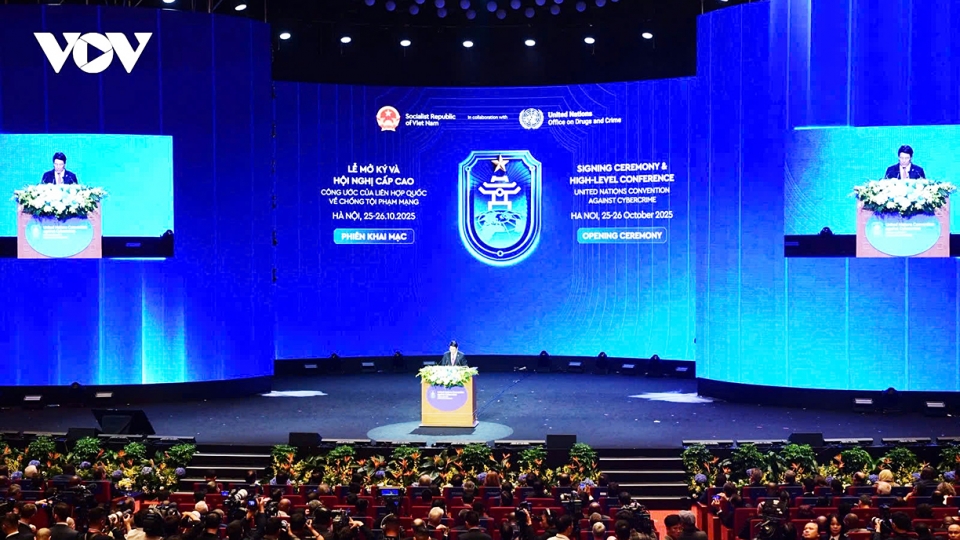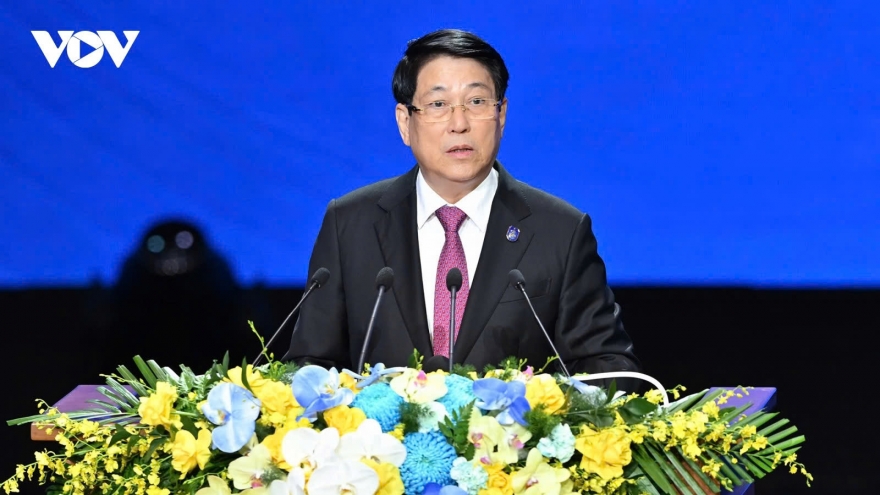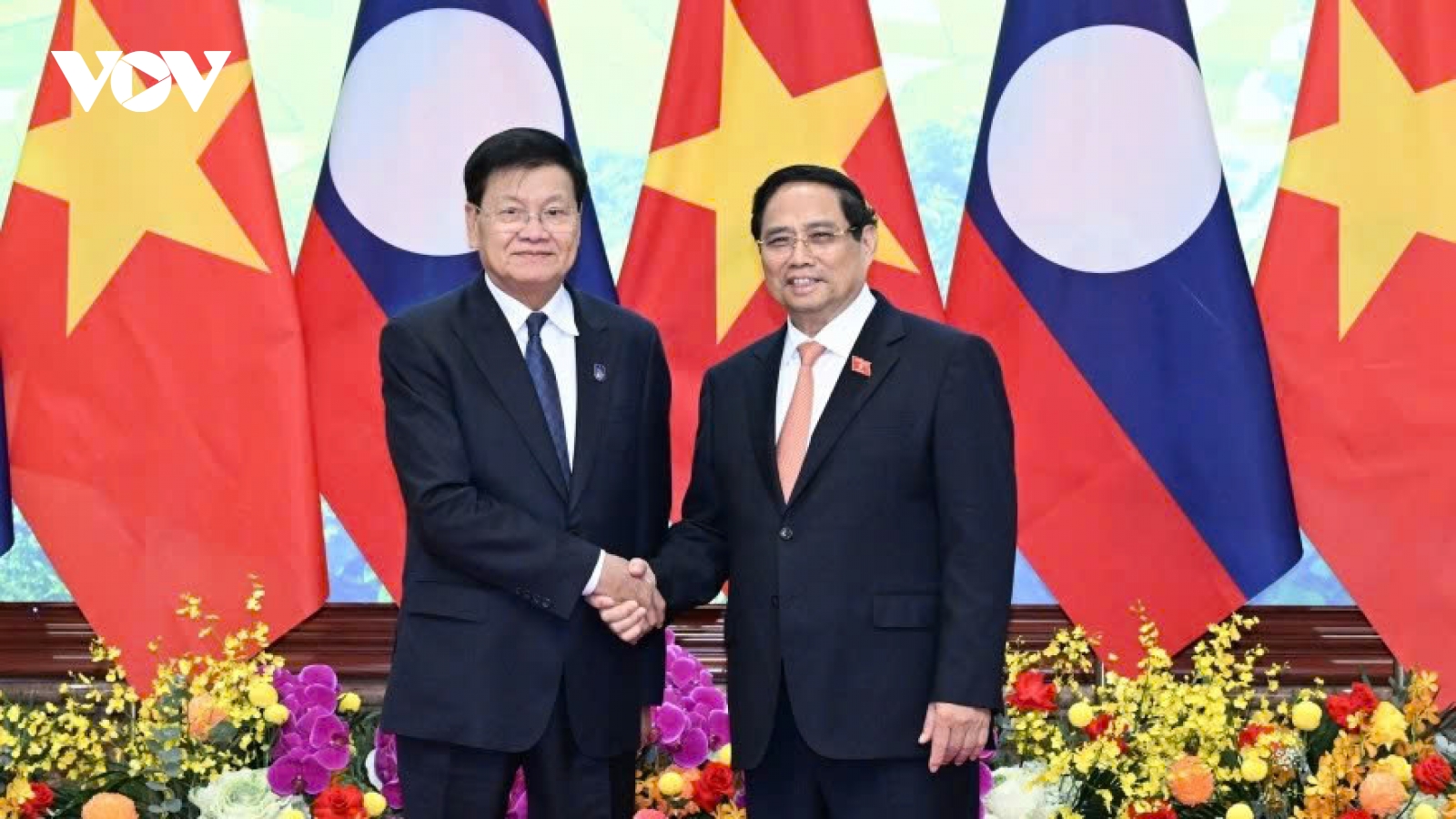Hanoi Convention marks historic milestone in global cooperation against cybercrime
VOV.VN - The signing of the UN Convention against Cybercrime (Hanoi Convention) in Hanoi is described as not only a major diplomatic occasion but also a historic turning point in global efforts to ensure cybersecurity and strengthen multilateralism, heard a joint press briefing in Hanoi.
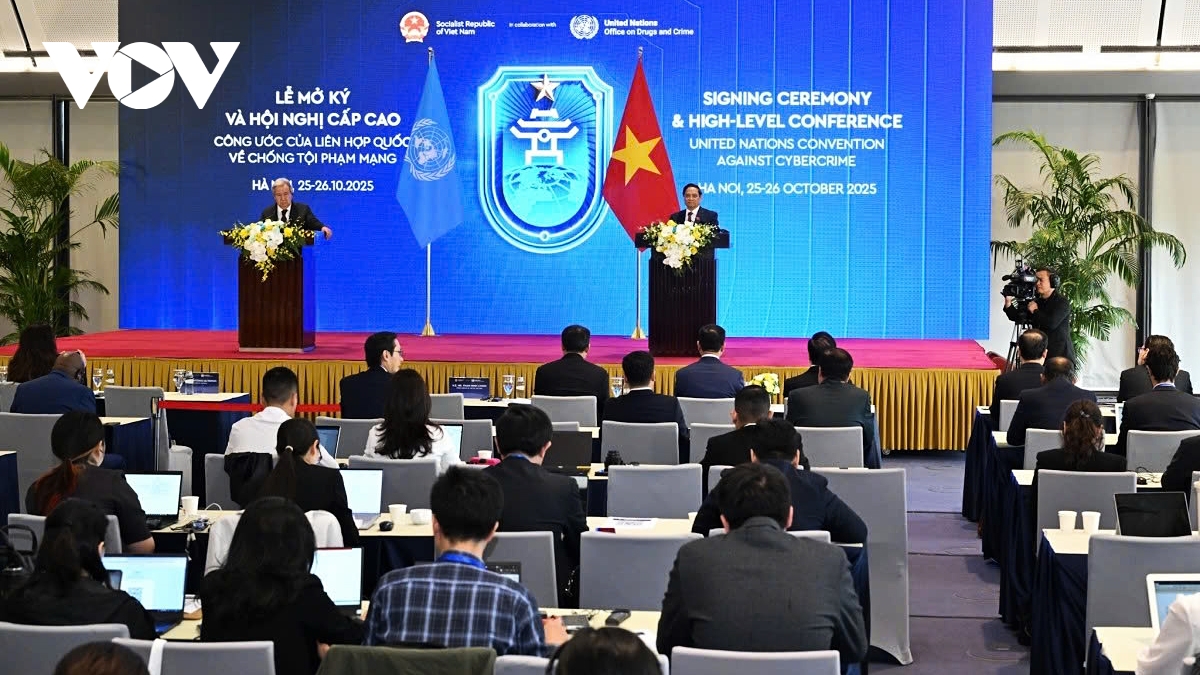
The signing ceremony, held at the Hanoi Convention Centre on October 25, gathered representatives from nearly 100 countries and over 100 international and regional organisations, with 65 nations signing the Convention on the spot on October 25.
Speaking at the press conference following the signing ceremony, Prime Minister Pham Minh Chinh of Vietnam noted that the signing ceremony is a historic event as it takes place at a time when multilateralism faces many challenges, yet continues to unite nations around shared global responsibilities.
“Cybersecurity is no longer an issue of any single country or individual,” the Prime Minister stressed. “No nation or person is safe if another’s cybersecurity is compromised.”
Moreover, the negative impacts of cybersecurity threats extend far beyond the economy, exerting profound effects on the spiritual, material, and cultural life of nations.
This is a matter of shared global concern that requires joint efforts and cooperation to minimise its consequences. Therefore, he said, upholding multilateralism, promoting collaboration, and strengthening international solidarity are essential for an effective collective response.
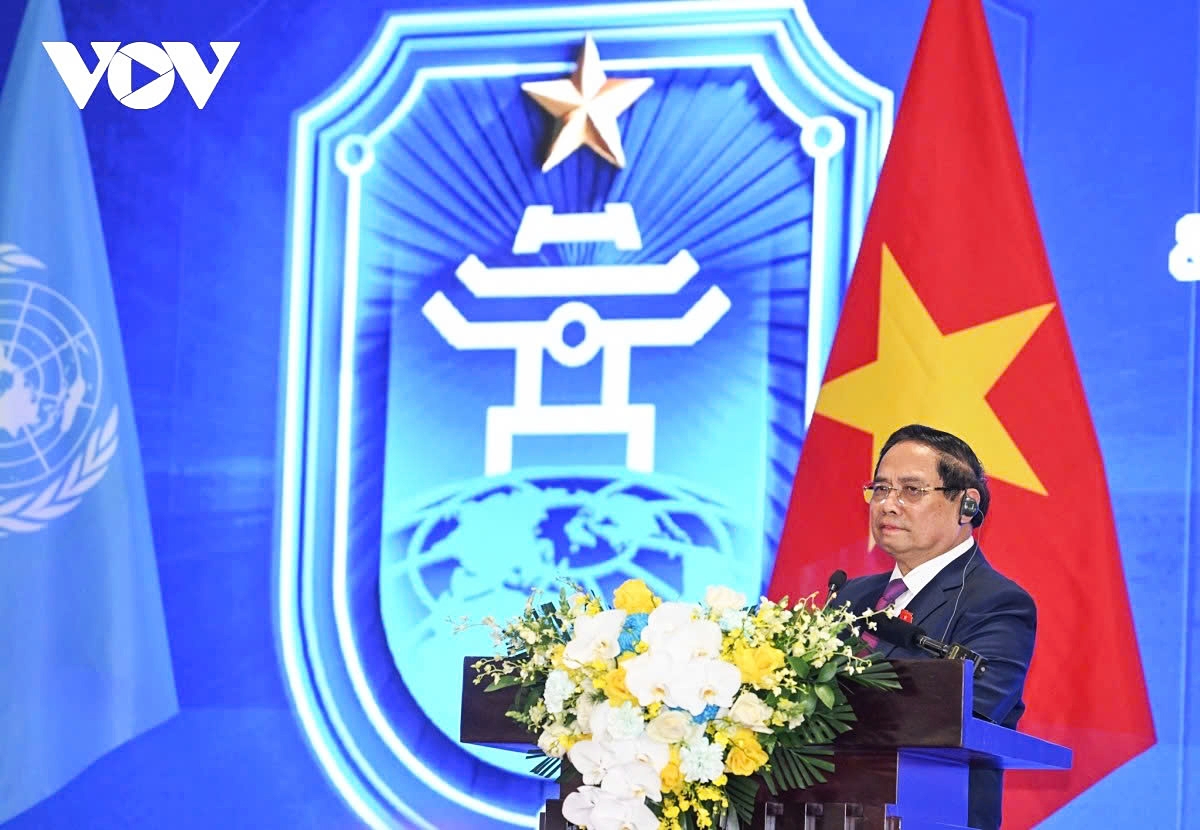
The PM said the Hanoi Convention reflects humanity’s collective determination to cooperate and build a secure, sustainable digital future. The United Nations’ decision to entrust Vietnam with hosting the signing ceremony, he added, demonstrates international trust in Vietnam’s capability to promote digital transformation and manage major multilateral processes.
“Vietnam pursues an independent, self-reliant, multilateral and diversified foreign policy, as a reliable partner and responsible member of the international community,” Prime Minister Chinh affirmed.
In his remarks, UN Secretary-General Antonio Guterres hailed the Hanoi Convention as a “historic and timely global treaty” - the first international criminal justice instrument in over two decades - designed to protect people in the digital era.
It is fitting that this milestone takes place in Vietnam, a country that has embraced technology, driven innovation, and become an essential part of the global digital supply chain, he said.
The Secretary-General noted that while the Internet connects humanity in unprecedented ways, it also enables cybercriminals to expand their reach, disrupt essential services, and inflict economic damage worldwide.
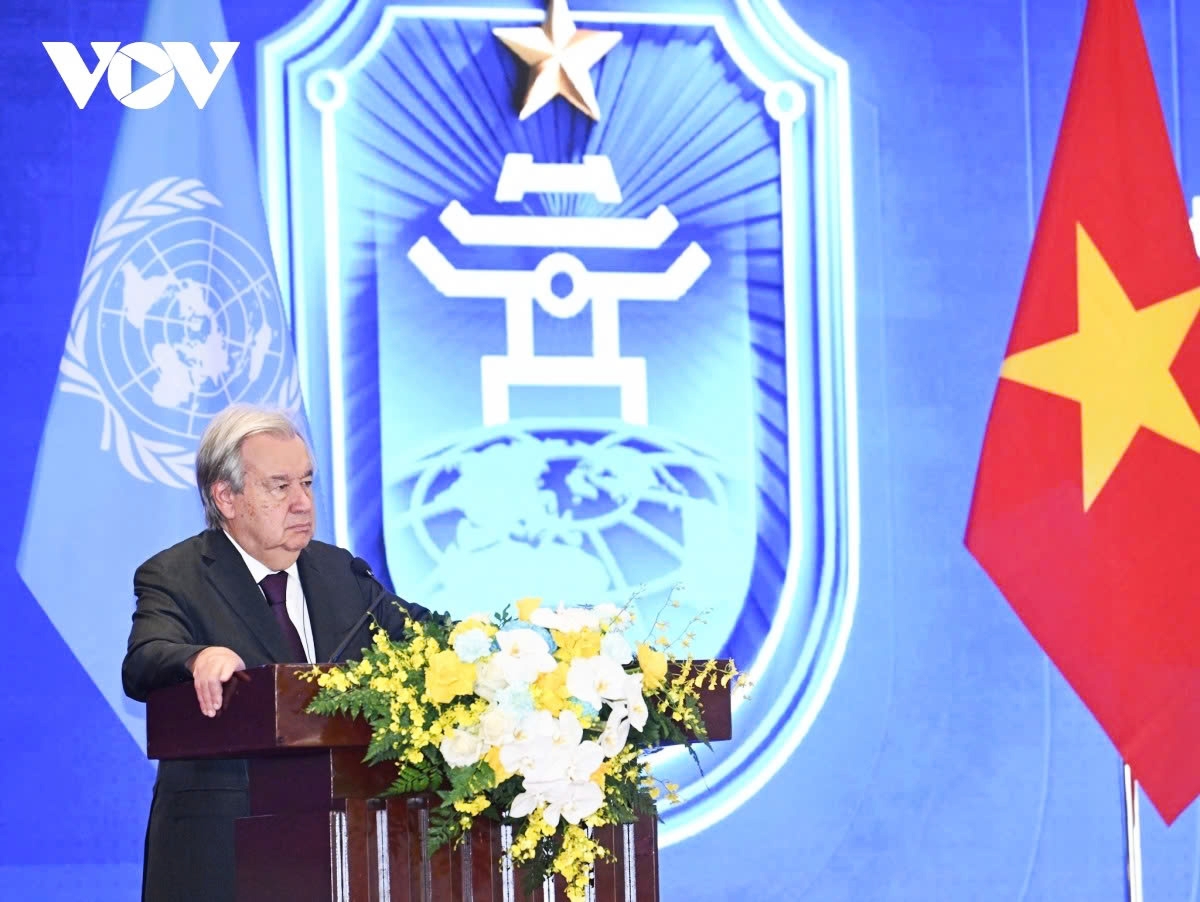
The Hanoi Convention provides a long-awaited legal framework for nations to cooperate in preventing, investigating, and prosecuting cybercrime, while safeguarding human rights online. It also allows for cross-border sharing of digital evidence and establishes a 24/7 cooperation network to trace illicit financial flows and recover stolen assets.
Both Prime Minister Pham Minh Chinh and UN Secretary General Antonio Guterres later answered questions relating to the Hanoi Convention and cybersecurity.
Prime Minister Chinh underlined that Vietnam’s 50-year partnership with the UN has helped the country integrate deeply into the global community and apply international knowledge to its own development path.
He affirmed that Vietnam is both a beneficiary and a contributor to multilateral cooperation, actively implementing the Sustainable Development Goals (SDGs) and sharing practical experiences with the international community.
Vietnam will continue to stand with the United Nations and all partners to safeguard peace, promote development, and combat cybercrime – a new challenge that affects humanity, security, and culture alike, he said.
Meanwhile, UN Secretary-General Guterres urged all countries to ratify, implement, and support the treaty, especially through capacity-building for developing nations.
This Convention is not just a legal text, it is a promise that no nation, large or small, will be left behind in the fight against cybercrime. It’s the time to turn signatures into action, he said.


